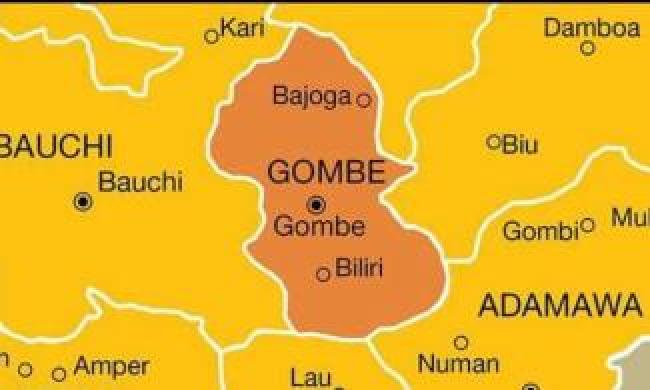At least 59 children have been rescued from suspected human traffickers in Gombe State over the past eight months, following the state government’s introduction of a new transport policy aimed at tightening security at motor parks.
This was disclosed on Monday by the Director-General of Gombe Line Transport Service, Dr. Sani Sabo, during a media briefing on the impact of the reform.
Dr. Sabo said the children were rescued after security personnel uncovered multiple trafficking attempts during routine checks at the newly established Ibrahim Dankwambo Mega Park. The park was set up as part of a transport reform that merged all commercial vehicle operations into a single, secure location.
“We intercepted drugs, illegal weapons, and rescued 59 children from human traffickers within eight months,” he revealed.
“These operations were possible because every vehicle and passenger can now be traced through the Mega Park’s manifest system.”
The Gombe State Government had, earlier this year, implemented a centralised transport system that brought all major motor parks under one coordinated and secure facility — the Ibrahim Dankwambo Mega Park. The goal was to eliminate unregulated transportation services that were being used to carry out crimes such as human trafficking, drug smuggling, and illegal weapons movement.
With the reform, all passengers are now required to register through a manifest system, making it easier for security agencies to trace vehicles, track suspicious movements, and respond to threats.
According to Dr. Sabo, the effort is a joint operation involving several security bodies, including the Nigeria Police Force, the National Drug Law Enforcement Agency (NDLEA), the National Agency for the Prohibition of Trafficking in Persons (NAPTIP), and the Nigeria Security and Civil Defence Corps (NSCDC).
“The success we are seeing is due to the strong collaboration between all these agencies working together inside the Mega Park,” he added.
Most of the rescued children, according to officials, were intercepted while traffickers attempted to move them out of the state. The traffickers had disguised themselves as legitimate transport operators or guardians, hoping to bypass scrutiny.
However, the new system, which requires identification and passenger records, raised red flags and prompted deeper investigations that led to the rescue of the minors.
The Director-General noted that this would not have been possible under the old, disorganised motor park system, which allowed criminals to exploit security loopholes.
Before the reform, Gombe State had multiple unregulated motor parks and roadside loading points. This made it difficult for law enforcement to monitor movement in and out of the state effectively.
The lack of proper structure not only led to traffic congestion but also made the environment fertile for illegal activities, especially human trafficking and smuggling.
The state government, under the leadership of Governor Muhammadu Inuwa Yahaya, launched the Mega Park initiative to restore order and improve safety. Apart from security benefits, the park also aims to boost transport efficiency, passenger comfort, and revenue collection.
Stakeholders have praised the policy, saying it is not only rescuing victims but also preventing future cases of trafficking. NAPTIP and other security agencies are now planning to replicate similar strategies in other vulnerable states across the country.
Dr. Sabo urged the public to continue supporting the initiative and report suspicious movements to authorities. He assured that the Gombe Line Transport Service will remain committed to safeguarding lives and ensuring safe travel for all passengers.
As Nigeria continues to battle with human trafficking, drug abuse, and arms smuggling, Gombe’s approach offers a model for how transport reforms and inter-agency collaboration can deliver real results in security and human protection.

